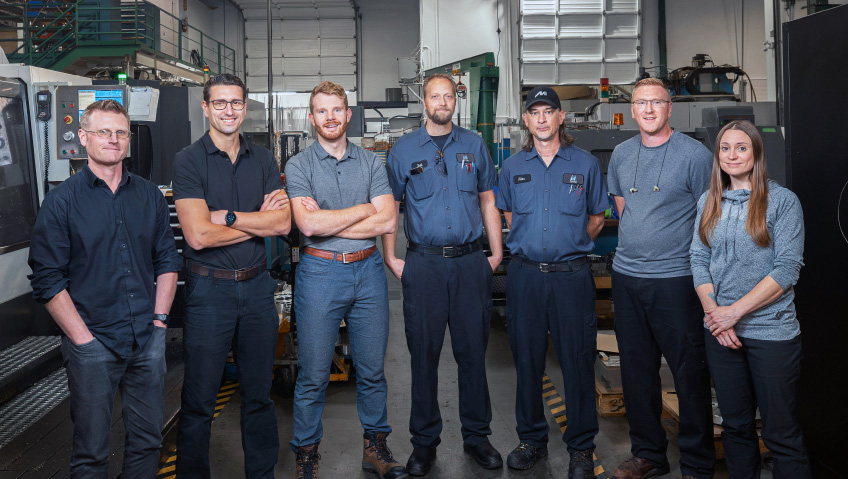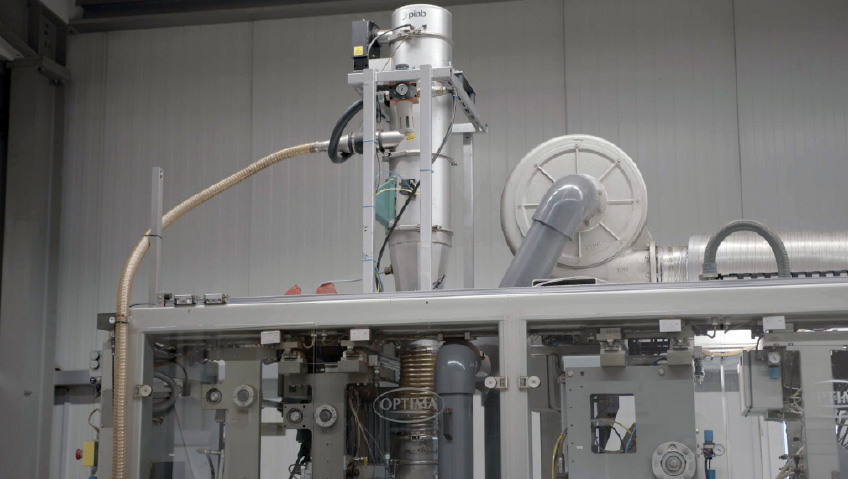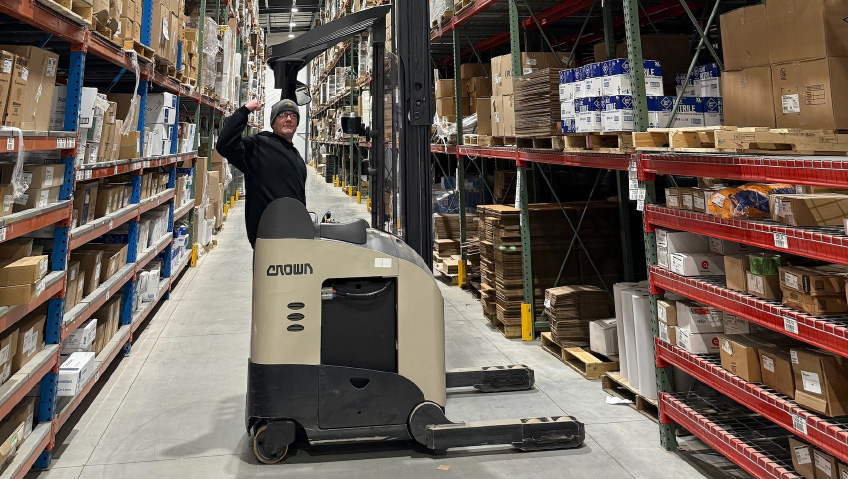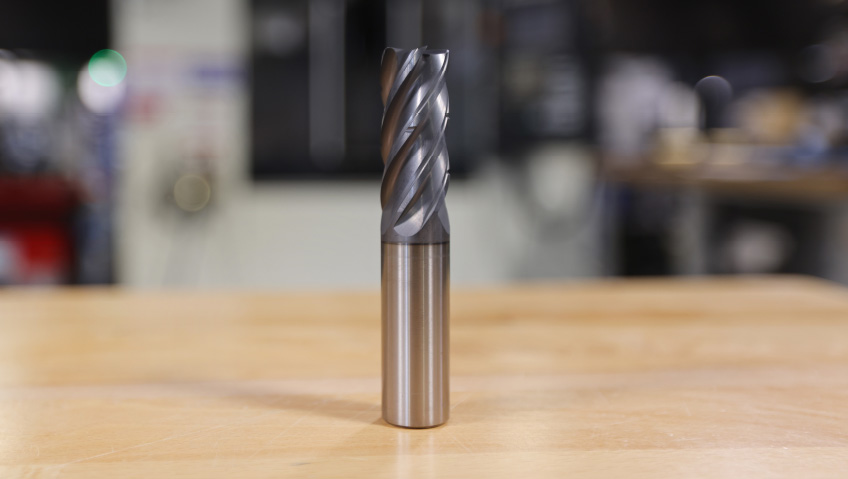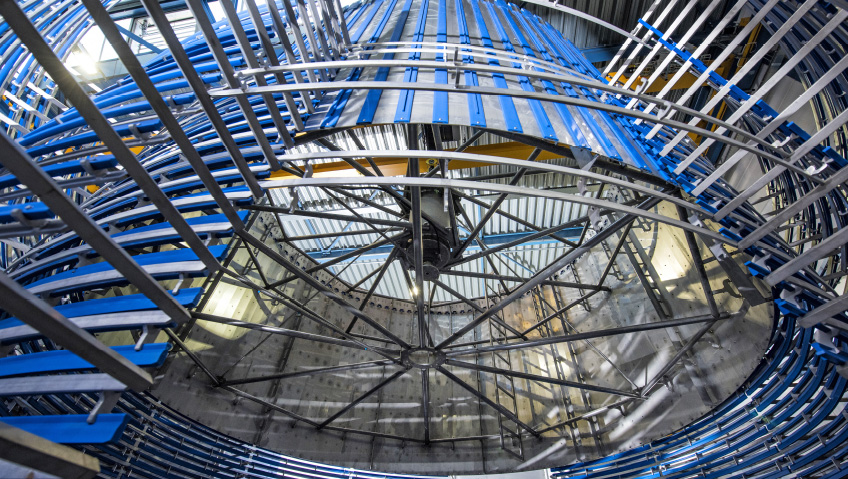Established in 1983 in Coquitlam, British Columbia, Mahler Machining has grown from a manual machine shop into a flourishing CNC machining facility committed to creating quality products and providing exemplary service worthy of a true leader in the machining industry.
An ISO 9001 certified company, Mahler uses SPC (statistical process control) quality control practices as well as final quality control examination on the components it produces for a host of industries that include clean technology, aerospace, medical, forestry, sonar, pulp and paper, and deep sea submergence. The business has the flexibility in capacity and skill to handle complex prototype jobs all the way up to production runs that deliver parts in the thousands per month.
With a 20,000-square-foot climate-controlled environment designed to facilitate ideal production flow, Mahler utilizes the latest in CNC technology to ensure superior quality and provide the ideal working environment for its skilled machinists.
“The business has changed over the last 40 years in a number of different ways, but always stayed dedicated to manufacturing high-complexity parts, which is our sweet spot,” says Nik Paukkunen, Co-CEO and Owner. “And that hasn’t changed for decades.”
Now in its third generation of ownership, the business was originally started by Adam and Trudy Mahler, then acquired by an employee, Pedro Fernandes, and his wife Carlynn 16 years ago, and is now owned as of a year ago by Nik Paukkunen and Aaron Kennedy, the other Co-CEO and Owner.
“Over those four decades, there’s been a real dedication to high-calibre manufacturing, a consistent focus on developing people, equipping those people with industry-leading technology, and also the systems and processes to produce high-quality work,” says Paukkunen.
Setting Mahler apart from its competitors, machinists at Mahler are rigorously trained in how to program, set up, operate, and run jobs from start to finish as opposed to more traditional models with a dedicated programmer and a team of operators. This is how Mahler uniquely keeps its talent pool progressing and upskilling while holding industry-leading quality metrics.
“That’s how we have such industry-leading quality metrics, and why people love working here,” says Paukkunen. “Our retention of staff is so strong because they get ownership of the part from start to finish, and are constantly problem-solving and working on different parts—Mahler being a manufacturer of thousands of unique parts annually.”
One reason Mahler continues to grow after being around for 40 years is the diversification of its customer base, adds Kennedy.
“We serve customers in a wide variety of industries with no one industry making up more than 30 percent of our business. We do a lot of work in growing industries like robotics, clean technology, deep-sea submersibles, medical, aerospace, and in different natural resources sectors like oil and gas and mining.”
This breadth of expertise benefits both customers and the company alike as the economy goes through different cyclical patterns.
“One of the unique things about Mahler is we are typically the primary or sole manufacturing partner for our customers,” says Paukkunen. “Most of our clients don’t have internal machining capabilities or CNC machines in-house; they rely on us to make parts that ultimately go into their end product.”
The business also acts like a high-calibre sports team, he adds, with a “fantastic” group of individuals on the team. “It’s a credit to the previous owner Pedro for fostering that type of culture,” says Paukkunen. “It’s very learning-focused; everyone’s trying to upskill to new jobs and collaborate on projects and new parts. If you work here, you’ve typically got a passion for complex machining and you love what you do.”
It’s also very performance-based. With quality as the most important aspect of the business, Mahler ensures any parts shipping out the door have gone through a rigorous process and bear a quality stamp of approval. Naturally, employees take great pride in ownership.
“We’re trying to continue and preserve that at all costs,” Paukkunen says. “We’re also trying to put more ownership and autonomy in decision-making onto the rest of the team.” He adds that the leadership style is very collaborative in terms of getting the right people in the room with the right information.
“Everyone’s an expert in different domains within the business, and we’re empowering them to make decisions that are right for the company,” he says. “We do that because it’s our leadership style, but also because we’re not machinists. It’s a benefit because it means we need to elevate people to make those decisions, which is exciting.”
The spin-off bonus of this attitude, Kennedy says, is that the culture found in a lot of manufacturing environments which involves employees protecting their discrete knowledge doesn’t exist at Mahler.
“Everyone here is so excited, passionate, and ready to explain not just how to do something, but also the why behind the approach they’re taking. I can’t emphasize enough how lucky we are to have inherited a culture where everyone’s just so passionate about sharing their knowledge and levelling up as a group and a team.”
Addressing the ongoing challenge of recruiting qualified workers in the industry, Mahler has taken several different successful approaches this year including setting up a partnership with the British Columbia Institute of Technology (BCIT) to bring in machining apprentices, targeted hiring of experienced machinists, and a grassroots program that takes individuals with mechanical aptitude and trains them into Red Seal certified machinists.
Receiving input from employees is also important, whether it’s speaking informally while spending time on the floor or in a more formal sit-down twice a year.
“The key questions we like to ask our staff are, ‘What are you enjoying about your job?’ ‘What takes energy away from you?’ ‘What are you missing that would make your life easier?’” shares Paukkunen. “We synthesize that feedback from the group and say, ‘here are the sorts of priorities we want to fix within the business.’”
One also cannot overstate the value of the training that happens organically on the production floor with younger staff working alongside the more experienced members, adds Kennedy, and the company has also invested a time and money into training opportunities for staff, which include CAM programming courses from Mazak and Westcam (Gibbscam) and sponsoring multiple operators to attend BCIT in pursuit of becoming Red Seal certified machinists.
“Our objective is to grow the business,” Paukkunen says. “From a capacity perspective, that’s both labour and machines.”
Before buying the business, the duo had gone through what the utilization of the existing equipment was and found there was a lot of existing capacity with the fantastic equipment the company has today.
“We run top-quality Mazak machines from Japan. Plus, as we’ve moved more into the medical, mining, and mineral processing industries, we’ve received a ton of demand on the small turning side, so we’ve added a new Mazak Quick Turn 100MSY,” explains Paukkunen. “That not only gives us more capacity for small turning, but new capabilities adding y-axis cutting and a sub spindle for efficient higher volume production runs.” Additionally, this year Mahler added a Mazak VC500 vertical mill to enable rapid lead times for customers and another machine centre focused on training new staff.
Mahler has added 18 customers this year, and while the company has historically serviced the majority of its customers in B.C., right now 15 percent are located outside the province.
“We are fortunate to have had a lot of success this year and we owe that to the strength of our customer relationships,” says Kennedy. “The majority of our customer relationships extend decades, with over 60 percent of our customer base having been customers for 10-plus years. That statistic alone speaks volumes about the type of service we provide our customers.”
Analyzing the reasons for the long tenure of these customers, a huge part is what Mahler offers them, Kennedy says, which is a complete manufacturing partner and one-stop shop in many respects, with the company providing a wide variety of machining capabilities, from small, intricate parts such as medical device implants to large, complex milling and turning work. Mahler additionally utilizes a vetted group of suppliers, subcontractors, and vendors for finishing processes that include anodizing, plating, welding, heat treat, and testing whereby Mahler owns the final QC process on all parts.
“We have an ability to do unique things in inventory management for our customers who have repeat needs for parts, where we can build a safety stock here,” Kennedy says. “With this Kanban-style system, whenever we receive a release purchase order from our customers we have those parts ready on the shelf and can guarantee next-day or same-week delivery. Parts are always on time.”
This helps customers to maintain lower levels of their own inventory, which is a huge benefit. Taking these core offerings—which have been such a large part of Mahler’s tight relationships with its base customers—and offering them to new customers has played a key role in the company’s growth and success.
Processes, of course, are another important aspect underlying the company’s success. “The business has solid standard operating procedures, being an ISO-audited facility, but there is always opportunity to improve organization,” Paukkunen says. “In the first year of ownership, we have been focused on decluttering, organizing, and systemizing certain aspects of the shop with the goal of simplifying life for our staff especially the new joiners.” A small but significant tweak in process involves viewing mistakes as opportunities, he adds. If something goes wrong, there is always a root cause if you ask why enough times and a lesson that should be shared with the entire team.
“Something that Nik and I are proud of,” says Kennedy, “is that at Mahler we have over 250 years of tenure with our existing staff in the building. Not machining experience, but tenure with this business. And as new owners stepping in, one of the things we worried about was turnover of that core staff and how they’d react to the new ownership.”
They’re both proud to finish the year with zero staff turnover, and while there will likely be retirements in the long term, Mahler has held on to that core group.
The other quality that sets the company apart is industry-leading equipment that can handle a wide variety of jobs for customers from a manufacturing perspective. Mahler runs Mazak machines from Japan, which are of the highest quality in the machining industry. The dynamic fleet of CNCs range from small to large turning up to 24” diameter equipped with bar feeders, live tooling, steady rests, and sub spindles for high-volume production. Vertical milling ranges from high-speed mills with pallet changers to large-scale rigid milling with up to 84” by 40” tables for large workpieces. To run lights out, there are two horizontal mills with pallet changers and tombstones. Finally, there are two 7-axis mill-turns and a 5-axis vertical mill for high-complexity parts.
The broad array of equipment and redundancy in each machining centre means Mahler can take on the entire suite of products for any of its OEM clients. Over the 40 years, the team has worked on nearly every machineable material including 17-4, titanium, different plastics, aluminum, stainless, alloys, and castings to name a few.
“The equipment and our continuing investment in that type of technology put us ahead,” says Paukkunen. “Then, it’s our focus on service to customers and thoroughly troubleshooting anything that comes our way. We want to be the leading manufacturing partner—that’s our mission for our customers—as well as the best employer in manufacturing in B.C.”
Lastly, Kennedy and Paukkunen are young owners in an industry that is typically plagued with succession issues. They are proud to join a team with a 40-year history of success, but what they are most excited about is the next 40 years of local manufacturing.

